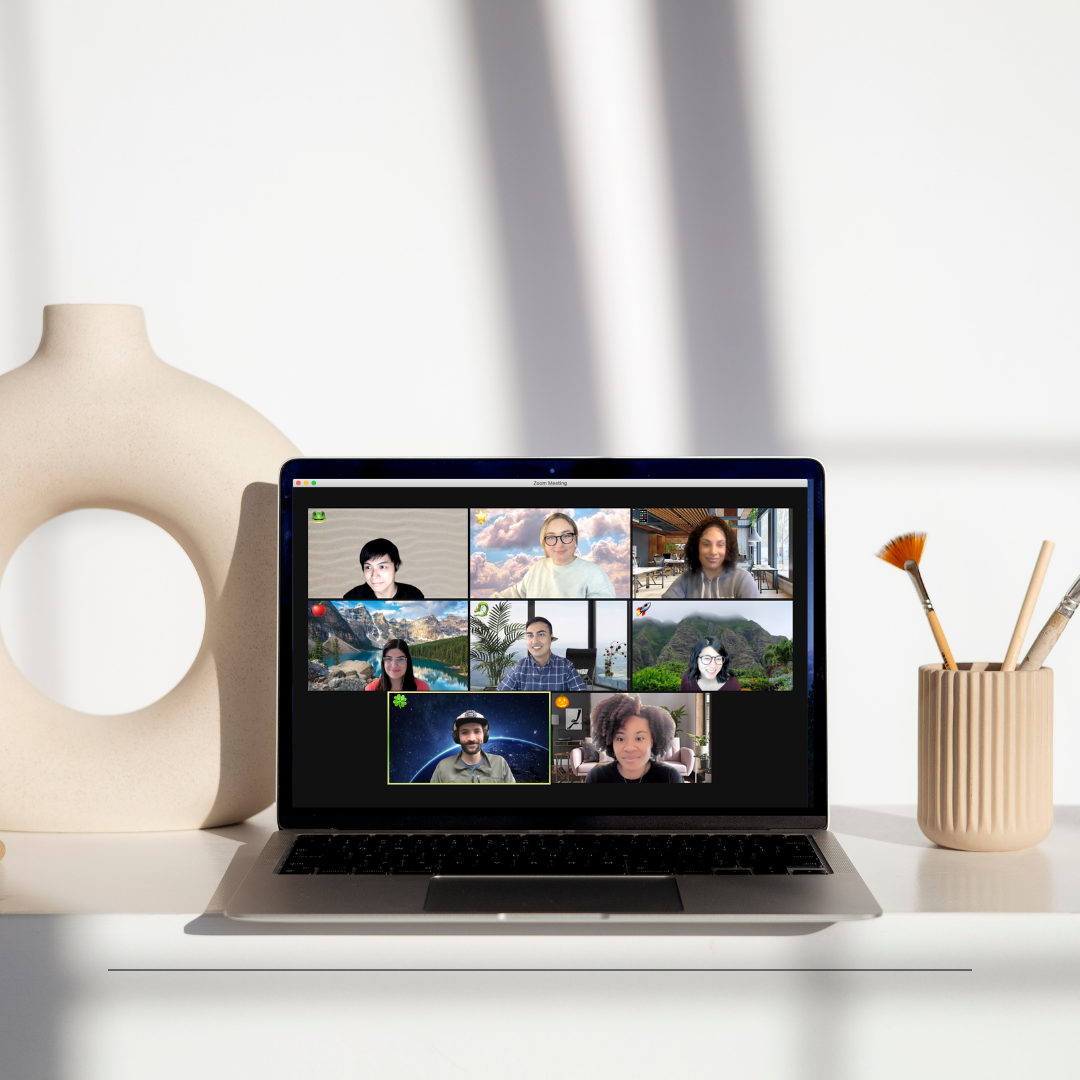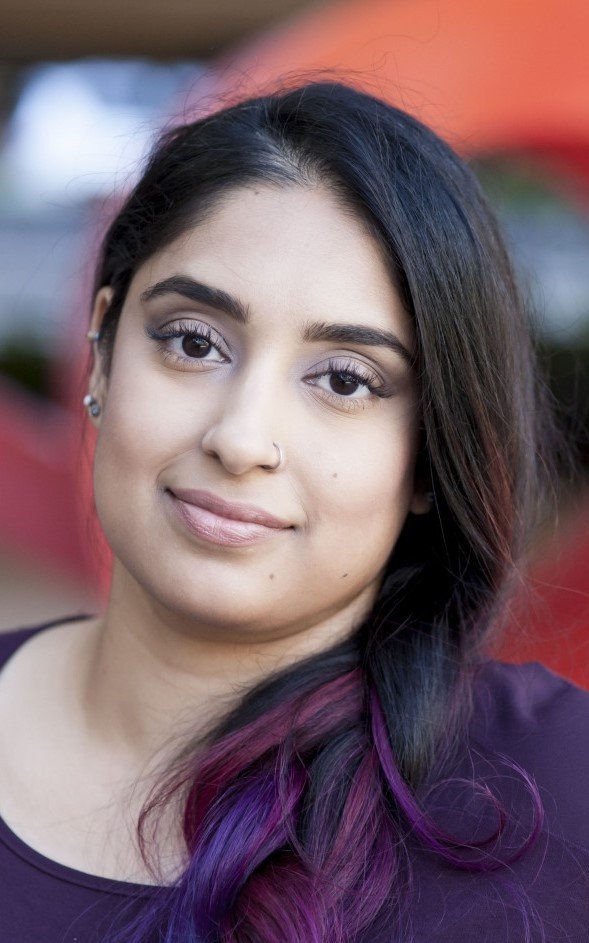
Comprehensive online program
Justice Fundamentals
Root your therapeutic work in anti-oppressive analysis for ethical practice. Connect with community, solidarity & generativity.

















Let’s just call it what it is –
Ethical practice requires so much more of us than 1 or 2 courses in grad school.
You did all the reflection assignments + waded through all the roleplays. You added book after book (…after book!) to your To-Read list…
But as you sit with clients, you just can’t shake how unequipped you feel when it comes to effectively responding to lived experiences of harm and oppression.
You know that ethical practice requires us to resist neutrality within oppressive systems, that it requires us to speak truth to power, and critique the colonial ways of being we’ve been trained up in…but how? And why does it feel so lonely?
Imagine what it would be like
if you could…
Be part of a rich community built on shared ethics, radically loving support, and generative dialogue
Solidify your intersectional, nuanced, and foundational understanding of systemic oppression, all in one place;
Develop crucial self-reflexive practices necessary for your liberatory, justice-oriented work;
Confidently conceptualize and engage concerns brought into therapeutic spaces from an anti-oppressive lens;
Respond ethically to the impact of oppression in societal contexts, lived experiences, ethics, assessment, and research; and
Implement justice-oriented and liberatory frameworks in your counselling practice.
Justice Fundamentals was created specifically to help you transform your practice with intersectional, anti-oppressive, liberatory ethics!
Click through to see what’s included
-
The Program
Turn theory into practice with our comprehensive 15-module program complete with community-based learning materials, transcripts, resource lists, and learning guides.

-
Capacity Conscious
Capacity Conscious Delivery: Our modules are designed with your caseload and busy life in mind, offering robust learning that won’t feel like a chore.

-
Community Co-Creation
13x Bi-weekly LIVE co-creation sessions: Be part of generative and facilitated community learning and insights you can’t get anywhere else.

-
Curated Learning
Curated, Community Learning Materials: Save your years! Get access to our curated collection of learning materials grounded in on-the-ground practice that took us decades to curate.

-
Guides + Accessibility
Transcripts and Learning Guides: Each module includes transcripts, learning guides, and image descriptions to promote accessibility and support your learning.

-
Resource List
Continuously Updating Resource List: There’s so much more amazingness to share! Get our resource list to support your continual growth beyond the program.

-
CE Credits
CE Credits: Our community-study program is approved for 78 CE credits upon completion with the CCPA! Self-study cohorts can register for CE credits pending individual approval.

Your 3-Level Program for ethical, liberatory practice
can be completed in 8-12 months, with each live Co-creation meeting bi-weekly over 8-10 weeks
Level 1: Foundations
10-Week Training / [Self-Study: $850+GST CDN
Community Study: $1250+GST CDN]
2025 Community Study Cohort Dates:
Feb 10, 24, March 10, 24 & April 7, 2025 from 11am-1pm PST
-
This module explores the importance of self-identification as a negotiation and rapport building skill crucial to autonomy and dignity-filled practice. After this module, you’ll have an opportunity to craft your own introduction practice and build familiarity with naming yourself in the work.
-
This module explores assessing various risks associated with counselling work and building respective plans for safety through a systemic lens. We also explore what it means to build collaborative safety and what collaboration actually is. After this module, you’ll have thorough, practical, and integrate-able practices to address harm within your therapeutic work.
-
Through this module, we explore and critique how white supremacy shows up in our education, practices and lives, impeding our ability to be with clients and our ethics in the work. Upon completion of this module, you’ll have the opportunity to redefine your practice through collective ethics.
-
In this module, we explore the applications of intersectionality and confluence as theories that guide our conceptualization of ethical, justice-oriented practice. Upon completion of this module, you’ll have a framework to build complexity and nuance associated with global implications and systematic erasure into your therapeutic analysis.
-
Both intersectional feminism and liberation psychology offer foundational conceptualizations of the roots of psychological harm and promote models of care that aim to facilitate the healing of both the affected individual and the communities and systems they belong to. After this module, you’ll be familiar with both these empirically validated theories and have a framework to integrate these theories into your working models of conceptualization.
-
Through this module, we develop a critique of psychology’s complicity a punitive logic that is empirically validated to be in opposition to wellness. After this module and in integrating abolitionist framework into counselling practice, you’ll be able to incorporate community-focused, dignity-centered ways of addressing power within counselling as well as ways to support clients in resistance to carceral logic.
-
Anti-colonial practice requires practitioners to be able to explore the process and impact of continual colonization on turtle island. Through this analysis we learn from Indigenous resistance and wisdom, deconstructing what has been normalized by the colonial roots of our profession. After this module, you’ll have a framework to support practice and continual learning from an anti-colonial lens.
Level 2: Deconstructing Systems Pt.1
8-Week training / [Self-Study: $600+GST CDN
Community Study: $1000+GST CDN]
2025 Community Study Cohort Dates:
April 28, May 12, 26, & June 9, 2025 from 11am-1pm PST
-
Through this module we will discuss race as a social construct while identifying the reality of racism alongside the resistance, activism, and community healing within BIPOC communities. After completing this module, you’ll be able to describe the connections of racism on mental health; use anti-racist practices in relation to the self and within counselling practice; and support clients through a resistance-based framework.
-
An in-depth consideration of spirituality and religion is often ignored in counselling programs even though they are fundamental aspects of client experience. An unfamiliarity in exploring these concepts further compounds the specific oppression experienced by folx holding non-colonial faiths. After completing this module, you’ll be able to invite spiritual/religious practices within counselling practices; become aware of your own biases around religion/spirituality; and recognize the impact of spiritual/religious practices on mental health and healing.
-
This module was designed to support practitioners in beginning to examine cisgenderism, patriarchy, and queer theory with a particular focus on the importance of language, social constructs, and how they impact the ways we understand gender and sex. It will also describe the ways that queer theory impacts counselling outside of gender and sex through an intersectional lens. Upon completing this module, you’ll be able to apply queer theory beyond your understanding of gender and sex, recognizing the ways social constructs and language limit counselling work.
-
Exploring the impact of sexuality and relationship structures are often neglected clinical programs, largely due to the stigma associated with exploring sexuality and the normalization of purity culture. In this module, we will explore different relationship structures and the spectrum of sexual identities/expressions. Upon completing this module, participants will be able to use appropriate language when talking about sexuality and relationships in their counselling practices and unpack biases and assumptions of relationships and sexual identities/expressions that are non-cis-het-mononormative.
Level 3: Deconstructing Systems Pt.2
8-Week training / [Self-Study: $600+GST CDN
Community Study: $1000+GST CDN]
2025 Community Study Cohort Dates:
June 23, July 7, 21, & Aug 11, 2025 from 11am-1pm PST
-
Through this module we will explore the intergenerational impacts of classism and class mobility, examine classism through an intersectional lens - with special attention to capitalism, race, health, criminal legal system, access - and how this impacts mental health. Upon completing this module, participants will be able to identify the ways that counselling can be classist; implement practices that are more just to those with financial barriers; and understand the ways that mental health struggles are related to class through an intersectional lens.
-
Through this module, we will examine the impacts of ageism of biological health in relation to the medical system model within therapeutic practice. Upon completing this module, you’ll be able to weave an age analysis in relation to previous modules; identify the impacts of perceived age and access; and demonstrate knowledge of ethical considerations such as consent and autonomy.
-
Healthism can erase contextual factors (including race, poverty, capitalism, and food deserts) and choice/autonomy. Through this module, we will explore the ways in which healthism and anti-fat bias intersect and its impacts on mental health, while naming the history around anti-fatness in relation to anti-Black racism and colonialism. After this module, you’ll be able to integrate a contextual approach to “health” and anti-fat bias that focuses on dignity and autonomy, recognizing the impact of anti-fatness in counselling and health settings.
-
Ableism is commonly the least explored -ism when speaking of anti-oppressive practice. In this module we will examine the deconstruction of ableist language and practices common in counselling, as well as describe the intersections of disability justice in relation to class and the criminal legal system. After this module, participants will be able to implement aspects of disability justice into their counselling practice; begin to distinguish counselling interventions through a disability justice lens; and co-create counselling practices that resist problematic, individualizing, and deficit-based narratives.
Plus these bonuses!
Click each ITEM to expand
-
A guided 4-part training to help you navigate the most common barriers to justice-oriented practice so you can bring your whole self in living your ethics.
-
Get access to our moderated, always accessible Discord + Peer Group platform where you can build relationships with fellow practitioners, share wins, and ask questions.
Meet your community Meet Your community meet your community meet your community meet your community
Relational Unlearning:
Meet Your Facilitators
Hey! I’m Abby
(She/Her; MA, RCC-ACS)
I’m a cisqueer, half-gen, racialized settler, currently occupying the unceded and ancestral territories of the xʷməθkwəy̓əm (Musqueam), Skwxwú7mesh (Squamish), Səl̓ílwətaʔ/Selilwitulh (Tsleil-Waututh), S'ólh Téméxw (Stó:lō), Qayqayt, and kʷikʷəƛ̓əm (Kwikwetlem) peoples. I navigate the world in a neurodivergent, straight-sized body and am working-turned-middle class. My ancestors and I are from Hong Kong, with roots in Chaozhou and Nanjing.
When I was doing my clinical training, the only official mention of systemic oppression was isolated to one course at the very end of the program, complete with trauma-porn and overly conceptual, intellectualized conversations of structural violence. The one and only representation of me and my people was in this one course - and the only story being told was one of massive exploitation within a global context.
-
Struggling to understand the emotional impact I was experiencing from this, my body recontextualized my experiences and began to language what I didn’t know I knew.For the next almost decade, I poured over activists’ blogs, books, and trainings - so much so that I started teaching at clinical graduate programs. Determined not to replicate my experience for my students, I spent 100s of hours every year to curate and revamp my syllabus, the learning materials, and the conditions for exploring these complex and often confronting realities of our work.
But even then, I couldn’t shake the limitations that came with teaching institutionally. Limitations that made generative conversation outside the threat of academia impossible. Limitations that restricted the safety of the space required to have fiercely transformative and lovingly challenging conversations.
Through solidarity + dreaming, Bhupie and I connected to co-conspire a more radical way to resist the colonialism and capitalism of our profession, a more radical way to teach that actually works.
There were just too many of us experiencing the same thing. So, we got together and made the program we needed.
Hi, I’m Bhupie
(She/her; MA, RCC-ACS)
I’m a settler who was born and raised on the stolen unceded, ancestral territories of the Semiahmoo, sq̓əc̓iy̓aɁɬ təməxʷ (Katzie), Kwantlen, kʷikʷəƛ̓əm (Kwikwetlem), Qayqayt, and sc̓əwaθenaɁɬ təməxʷ (Tsawwassen) Nations; and my ancestors are from India. I am a cis, non-disabled, middle class, small fat woman.
Being in spaces where we learn relationally has been the most meaningful experiences for me. I feel privileged to do this not only in my personal life but also in the ways I engage in my counselling practice and in academic/’professional’ spaces.
-
For almost two decades, I brought what I could to create space within academic/professional settings so that we could engage in work that would be more radical and laboratory.
Recognising that what I was doing in academia wasn’t enough nor sustainable, I began to fantasize about a more liberatory space—
A space where we had shared ethics but different lived and living experiences; where we could invite each other into critique and feedback without backlash; where we could build more accountability practices; where we could name power, where we could shake up things if we wanted to; where honesty and vulnerability were honoured and witnessed, not fetishized; where we could dream of what would come next;
And where we were in connection and community.
Abby and I connected and that was the beginning of these ideas taking a form and shape. Her solidarity and commitment to ethics made space for us to dream together about what more liberatory spaces could look like.
And as we engaged with community, we grew and I felt more at ease knowing that we could do this together.
I am so honoured to be a part of such an amazing group of people and so look forward to having you join us.
Thoughts From
Your Fellow Therapists
*Some names have been changed for anonymity
What if I don’t know enough to learn in a community setting?
What if I make a mistake or say something wrong? What if I’m harmed in community again?
The difference that actually makes a difference
Justice Fundamentals is a joint collaboration between Reflecting on Justice and Prospect Counselling. Prospect Counselling occupies the unceded traditional territories of the xʷməθkwəy̓əm (Musqueam), Skwxwú7mesh (Squamish), Səl̓ílwətaʔ/Selilwitulh (Tsleil-Waututh), Qayqayt, and kʷikʷəƛ̓əm (Kwikwetlem) Nations. Reflecting on Justice occupies the unceded, traditional, and ancestral territories of the xʷməθkwəy̓əm (Musqueam), Skwxwú7mesh (Squamish), Səl̓ílwətaʔ/Selilwitulh (Tsleil-Waututh), S'ólh Téméxw (Stó:lō), Qayqayt, and kʷikʷəƛ̓əm (Kwikwetlem) peoples.
Prospect Counselling is committed to providing lower-cost counselling services, disrupting capitalist values, and funding projects for collective healing within communities. Reflecting on Justice is committed to disrupting the colonial project we benefit from where 50% of their proceeds are redistributed to Indigenous organizing efforts, independent anti-oppression educators, + mutual aid efforts. So, this collaboration is in support of each other’s commitments to justice doing and collective healing. All proceeds from Justice Fundamentals are distributed between Prospect Counselling (75%), and Reflecting on Justice (25%).
Ready to Enroll?
You’ve Got Options.
Self-Study
(Instant Access)
15x Comprehensive Capacity Conscious Video Modules and Slide Decks;
Specifically Curated, Community-Based Learning Materials;
Continuously Updating Resource Lists;
15x Downloadable Transcripts and Corresponding Learning Guides; and
A certificate of completion, self-study edition
Opportunity for CE credits, to be approved by your regulatory body
PLUS! Access to our Justice in Action Discord Community
Full program for
$150/month
Based on $1800 bundle tuition (save $250!) Indigenous, Black, and POC participants can access up to $512.50 and $256.25 in tuition subsidies, respectively. Please use code IBSELFSTUDY or POCSELFSTUDY.
All tuitions are in CDN and subject to GST.
Community-Study
(Next live Cohort Starting
FEb 2025)
Everything in self-study; PLUS
13x 2hr LIVE Bi-Weekly Community Co-Creation Sessions;
A certificate of completion, immersive Community-Study program edition
CE credits approved by CCPA;
AND Resisting Collusion: The Accountability Series 4-part Workshop
Full program for
$250/month
Based on $3000 bundle tuition (save $250!) Indigenous, Black, and POC participants can access up to $812.50 and $406.25 in tuition subsidies, respectively. Please use code IBCOMSTUDY or POCCOMSTUDY.
All tuitions are in CDN and subject to GST.
Frequently asked questions
Ready to join us?
Transforming the world starts with transforming ourselves.
Liberation begins with an untangling of what is human from what oppresses us.
Though our profession was born out of colonial ideologies and methodologies, a more anti-oppressive way to practice is possible. And you don’t have to figure this out on your own.
To paraphrase Mariame Kaba, collective liberation is built upon a tapestry of a million little experiments. A million little experiments that fundamentally change who we are and how we move through the world.
This program was not built to tell you the one answer to liberatory practice, but to invite you in transforming with us. Want to join us?





























